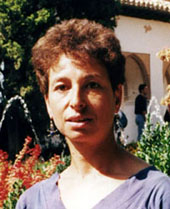| Σελίδες για το θέμα: < [1 2] | KudoZ: Should vote pro/non-pro options be eliminated? Αποστολέας σε συζήτηση: Barbara Cochran, MFA
|
|---|
Samuel Murray 
Ολλανδία
Local time: 10:02
Μέλος από 2006
Αγγλικά σε Αφρικανικά
+ ...
| KudoZ points for non-pro questions | May 1, 2019 |
Jessica Noyes wrote:
I had always thought that if a question is voted "non-pro", KudoZ points are not awarded to the person who answers.
Pro KudoZ points and non-pro KudoZ points are tallied separately, and non-pro KudoZ points do not count towards your directory ranking. You do get points, but they're not as valuable.
Is that correct? If so, then I would vote to keep the distinction.
This question is not about whether to maintain the distinction, but whether visitors to the KudoZ question should be allowed any say in deciding whether a question is "pro" or "non-pro".
Anyone (literally anyone, even if they don't even speak the language) can vote "non-pro". It takes 3 votes to change a question, and thereafter the question's status is based on the majority of votes. If you have one more enemy than friend, you don't stand a chance.
| | | | | The definition of non-PRO questions | May 2, 2019 |
Samuel Murray wrote:
writeaway wrote:
Personally I find it detrimental to the site as a whole to have basic, everyday terms posted as "pro". ... The word "pro" needs to be used for 'tough terms' and not for everyday language.
1. Remember, according to ProZ.com itself, "pro" is for "a question that is suitable for professional translators" (and if you click the question mark icon you'll see an explanation to the effect that "non-pro" is reserved for questions by mostly non-translators who are merely curious about something or do not ask the question because they want to use the answer in a translation job).
Samuel, I am curious to know where you saw that sort of definition.
The site FAQ says this:
"Non-PRO questions are those that can be answered by any bilingual person without the aid of a dictionary. All other questions are PRO."
See here:
https://www.proz.com/faq/2905#2905
I always followed this definition, because this is the only one I know of. The categorization has nothing to do with the asker or their intention, or their reason to post it. It only refers to the content of the question.
| | | | Natasha Ziada (X) 
Αυστραλία
Local time: 19:02
Αγγλικά σε Ολλανδικά
+ ...
| Definition of Non-PRO | May 2, 2019 |
Katalin Horváth McClure wrote:
The site FAQ says this:
"Non-PRO questions are those that can be answered by any bilingual person without the aid of a dictionary. All other questions are PRO."
See here:
https://www.proz.com/faq/2905#2905
I've always wondered about the 'any bilingual person' part in this definition - shouldn't that be 'any professional translator'? A lot of the Non-PRO questions I've encountered involved wordplay, cultural references, ambiguity or some other tricky aspect that made them perhaps not technically hard, but certainly challenging to answer.
Regardless of the nature of the questions, I'm not even sure why the FAQ would mention bilingual persons at all; this is a site for professional translators, who may or may not be bilingual, and 'merely' being bilingual and being able to answer language/translation related questions are two very different things.
Never mind the fact that trying to define 'bilingual' is similar to trying to define 'native': akin to opening a can of big, fat worms
| | | | Samuel Murray 
Ολλανδία
Local time: 10:02
Μέλος από 2006
Αγγλικά σε Αφρικανικά
+ ...
Katalin Horváth McClure wrote:
Samuel Murray wrote:
Remember, according to ProZ.com itself, "pro" is for "a question that is suitable for professional translators" (and if you click the question mark icon you'll see an explanation to the effect that "non-pro" is reserved for questions by mostly non-translators who are merely curious about something or do not ask the question because they want to use the answer in a translation job).
Samuel, I am curious to know where you saw that sort of definition.
If you ask a KudoZ question, by visiting this URL:
https://www.proz.com/ask
..then it says:

...and if you click that little question mark icon (not visible on the image above), you get:

The categorization has nothing to do with the asker or their intention, or their reason to post it. It only refers to the content of the question.
I think it has to do with both. The reason why a "non-pro" category exists isn't to separate "easy" questions from "hard" questions, but to make it possible for members of the public (and others who are mostly just curious about words) to use a feature that is actually intended for translators, without annoying the translators.
Translators should not vote question as "non-pro" simply because the voter himself is a "bilingual person who can answer it without looking in a dictionary", but only if the voter believes that *all* bilingual people who are reasonably intelligent would normally be able to answer it.
If the asker is a bilingual person, and he still had to ask, then it means that at least one bilingual person did not know the answer, and that means that it would be wrong and dishonest for anyone to vote for it to be "non-pro".
(Of course, not all translators are "bilingual" in their language combination...)
[Edited at 2019-05-02 12:01 GMT]
| | |
|
|
|
Richard Purdom 
Πορτογαλία
Local time: 09:02
Ολλανδικά σε Αγγλικά
+ ...
| non-PRO language pairs | May 2, 2019 |
Personally I'd like to see some entire kudoz language pairs classified as non-PRO.
I translate from Dutch and Portuguese into English.
The NL-ENG pair usually contains difficult questions that are answered with substantiation, grounds and references.
The PT-ENG pair, on the other hand, is a farce. Questions are generally asked by non-natives, answered by non-natives, the reason is often 'suggestion', nothing else, then non-natives select answers by other no... See more Personally I'd like to see some entire kudoz language pairs classified as non-PRO.
I translate from Dutch and Portuguese into English.
The NL-ENG pair usually contains difficult questions that are answered with substantiation, grounds and references.
The PT-ENG pair, on the other hand, is a farce. Questions are generally asked by non-natives, answered by non-natives, the reason is often 'suggestion', nothing else, then non-natives select answers by other non-natives and even enter them in the glossary! Marking this glossary as non-PRO would be the fair thing to do. ▲ Collapse
| | | |
Natasha Ziada wrote:
I've always wondered about the 'any bilingual person' part in this definition - shouldn't that be 'any professional translator'? A lot of the Non-PRO questions I've encountered involved wordplay, cultural references, ambiguity or some other tricky aspect that made them perhaps not technically hard, but certainly challenging to answer.
Regardless of the nature of the questions, I'm not even sure why the FAQ would mention bilingual persons at all; this is a site for professional translators, who may or may not be bilingual, and 'merely' being bilingual and being able to answer language/translation related questions are two very different things.
Never mind the fact that trying to define 'bilingual' is similar to trying to define 'native': akin to opening a can of big, fat worms 
In my opinion, "bilingual" here is actually a misnomer, not least because truly and fully bilingual individuals are probably more rare than "professional translators"...
I always interpreted the definition to mean that a question should be considered "non-pro" when someone with a very good (i.e. C2 level good) knowledge of the source language and native in the target language would be able to answer it (correctly) without the help of a dictionary... and without being a PROfessional translator (hence the "non-pro").
| | | | Robert Forstag 
Ηνωμένες Πολιτείες Αμερικής
Local time: 04:02
Ισπανικά σε Αγγλικά
+ ...
| Beyond surprising | May 2, 2019 |
Richard Purdom wrote:
Personally I'd like to see some entire kudoz language pairs classified as non-PRO.
I translate from Dutch and Portuguese into English.
The NL-ENG pair usually contains difficult questions that are answered with substantiation, grounds and references.
The PT-ENG pair, on the other hand, is a farce. Questions are generally asked by non-natives, answered by non-natives, the reason is often 'suggestion', nothing else, then non-natives select answers by other non-natives and even enter them in the glossary! Marking this glossary as non-PRO would be the fair thing to do.
I initially noticed this same problem years ago, and it doesn’t look like the situation has improved greatly over time. Many of the answers, including those awarded points, simply do not pass muster as acceptable English. This also applies to many of the offerings of someone with a prominent position on the overall leader board who answers questions in that pair.
In sum, there are a lack of qualified native English speakers active in the POR-to-ENG pair in Kudoz. This would not be surprising for the translation of less widely spoken languages into English, but it is fairly startling for a language like Portuguese.
[Edited at 2019-05-02 18:50 GMT]
| | | | Phil Hand 
Κίνα
Local time: 17:02
Κινεζικά σε Αγγλικά
| The glossaries were always a bit of a pipedream... | May 2, 2019 |
A nice idea, born of the Wikipedia moment, but could a professional ever use them seriously? Like Wikipedia, if they were properly curated, they could become a great place to start research (would require a sophisticated editing mechanism, with the option to remove items), but I don't even trust properly edited dictionaries, let alone something pieced together online. Plus, all kudoz answers are fully searchable online, so... I can't see the value of the glossaries at all. Kudoz remains... occas... See more A nice idea, born of the Wikipedia moment, but could a professional ever use them seriously? Like Wikipedia, if they were properly curated, they could become a great place to start research (would require a sophisticated editing mechanism, with the option to remove items), but I don't even trust properly edited dictionaries, let alone something pieced together online. Plus, all kudoz answers are fully searchable online, so... I can't see the value of the glossaries at all. Kudoz remains... occasionally helpful! ▲ Collapse
| | |
|
|
|
B D Finch 
Γαλλία
Local time: 10:02
Γαλλικά σε Αγγλικά
+ ...
| Wrong KudoZ glossary entries | May 2, 2019 |
writeaway wrote:
Askers already 'own' questions: it's no longer allowed to post a warning that the answer chosen is wrong, it is no longer possible for moderators to alter erroneous glossary entries,etc. Imo, muzzling colleagues 100% would also be detrimental to the site as a whole.
Though one can't alter wrong glossary entries, it is possible to post an "Agree" and comment to the answer you think should have been chosen, or a "Disagree" and comment to the chosen answer you think is wrong. Part of the skill of a professional translator is being able to notice when a KudoZ glossary entry is wrong or inappropriate to your context. Among its other functions, KudoZ can unveil incompetents; or rather they unveil themselves through their entries and use of it.
There is little point using the glossary without at least scanning the KudoZ question, answers and comments.
[Edited at 2019-05-02 17:37 GMT]
| | | | Richard Purdom 
Πορτογαλία
Local time: 09:02
Ολλανδικά σε Αγγλικά
+ ...
| kudoz PT - ENG | May 2, 2019 |
Robert Forstag wrote:
Richard Purdom wrote:
Personally I'd like to see some entire kudoz language pairs classified as non-PRO.
I translate from Dutch and Portuguese into English.
The NL-ENG pair usually contains difficult questions that are answered with substantiation, grounds and references.
The PT-ENG pair, on the other hand, is a farce. Questions are generally asked by non-natives, answered by non-natives, the reason is often 'suggestion', nothing else, then non-natives select answers by other non-natives and even enter them in the glossary! Marking this glossary as non-PRO would be the fair thing to do.
I initially noticed this same problem years ago, and it doesn’t look like the situation has improved greatly over time. Many of the answers, including those awarded points, simply do not pass muster as acceptable English. This also applies to many of the offerings of someone with a prominent position on the overall leader board who answers questions in that pair.
In sum, there are a lack of qualified native English speakers active in the POR-to-ENG pair in Kudoz. This would not be surprising for the translation of less widely spoken languages into English, but it is fairly startling for a language like Portuguese. [Edited at 2019-05-02 18:29 GMT]
Unfortunately the language has been hijacked by a number of Brazilian citizens who think that speaking good English qualifies them as native. They operate as a block, choosing answers from each other, I've noticed that most real natives don't even bother answering anymore. Here's one example, no agrees for the answer which doesn't differentiate between a farmers' market and normal fruit & veg market, even though the context is insulting someone selling wares at such a market! Worse, it got entered into the glossary as a 'professional translation'. https://www.proz.com/kudoz/portuguese-to-english/media-multimedia/6644870-feirante.html
[Edited at 2019-05-02 18:37 GMT]
| | | | | Σελίδες για το θέμα: < [1 2] | To report site rules violations or get help, contact a site moderator: You can also contact site staff by submitting a support request » KudoZ: Should vote pro/non-pro options be eliminated? | CafeTran Espresso | You've never met a CAT tool this clever!
Translate faster & easier, using a sophisticated CAT tool built by a translator / developer.
Accept jobs from clients who use Trados, MemoQ, Wordfast & major CAT tools.
Download and start using CafeTran Espresso -- for free
Buy now! » |
| | Wordfast Pro | Translation Memory Software for Any Platform
Exclusive discount for ProZ.com users!
Save over 13% when purchasing Wordfast Pro through ProZ.com. Wordfast is the world's #1 provider of platform-independent Translation Memory software. Consistently ranked the most user-friendly and highest value
Buy now! » |
|
| | | | X Sign in to your ProZ.com account... | | | | | |





















